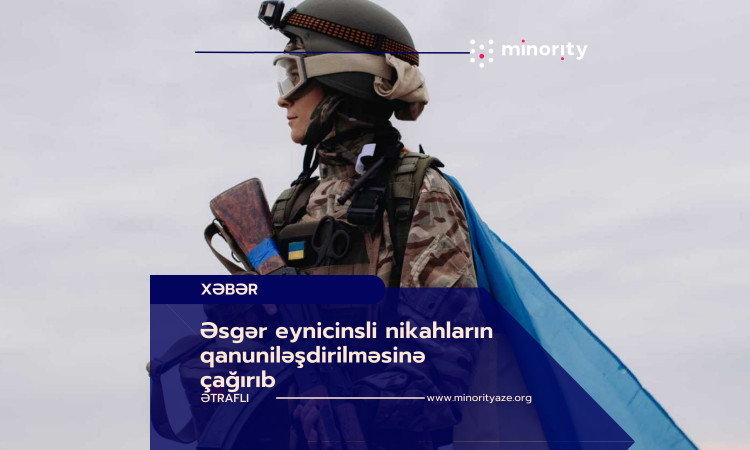The Echo of Georgia's anti-LGBTQ+ law in Azerbaijan
In recent days, Georgia's anti-LGBTQ+ bill has sparked political discussions in Azerbaijan
08/Jul/24
4712
The Echo of Georgia's anti-LGBTQ+ law in Azerbaijan
In recent days, Georgia's anti-LGBTQ+ bill has sparked political discussions in Azerbaijan. Government-aligned media have been publishing continuous articles on this topic, aiming to elicit supportive messages from officials for introducing similar legislation in Azerbaijan. Here are some excerpts from these speeches.
Tahir Karimli, a member of the Milli Majlis (National Assembly), stated, "The discussion of the bill against LGBT propaganda in Georgia is a correct step. The LGBT movement in Georgia has reached such a high level that it has become a matter of national security. Georgia is in the grip of casinos and the LGBT system. NGOs and others are excessively promoting this. Society has degenerated, and immorality has increased. Naturally, it is understandable that the Georgian parliament is concerned and discussing this issue. In Azerbaijan, LGBT is not yet widespread. We are trying to prevent it. Personally, I, my fellow deputies, and the elders are still able to take serious measures against it."
Karimli added that even if 5-10% of the population in Azerbaijan were LGBTQI+, a similar bill could be introduced in Azerbaijan. Furthermore, he stated that if the situation regarding LGBTQI+ in Georgia, were to occur 50% in Azerbaijan, then "it would be necessary to sound a serious alarm and raise the issue to protect Azerbaijan from such a calamity at the legislative level."
Yegane Hajiyeva, a member of the Press Council's Board of Directors, believes that "LGBT propaganda has already led to serious demographic problems in Europe. According to open data in the documents published by the European Parliament's LGBT Rights Defenders Platform, the number of people in Europe who identify as part of the LGBT community has increased fivefold in the last seven years."
"Europe aims to export these values worldwide and follow this trend that has caused serious demographic problems within itself globally. One of the values the European Union demands loyalty to from Georgia is the freedom of LGBT rights and propaganda," she added, applauding the initiative of the Georgian parliament.
Ahad Mammadli, the first deputy chairman of the AG Party and a political commentator, supports the Georgian government's policy on this issue. "There had been previous attempts to hold gay parades in Georgia. Conservative activists and priests had stopped them. There was also a clash in the square in Tbilisi. The Georgian government has always stated that its priority is integration into the European Union. Now they are saying that their position has not changed. They just emphasise the importance of protecting their national identity. I think they are right. Whether it is the 'foreign agent' law or the law on LGBT, it means the West imposing its dictate on countries like Georgia. Naturally, a self-respecting country would not accept such pressures."
Ali Orucov, the assistant to the leader of the Azerbaijan National Independence Party and a political scientist, believes that "Every state, geography, and nation has its own specific characteristics, traditions, and values that have formed over millennia. And these may not align with European values. Such a situation should not hinder integration. Certain general principles and values should be respected. However, some approaches that are valid for the West may not be acceptable for other states aspiring for integration, especially the South Caucasus countries that preserve their conservatism and national traditions." Orucov says that the anti-LGBTQI+ policy in the South Caucasus should not be an obstacle to their path to the European Union, as the national and moral values of these countries justify it.
Vahid Aliyev, an LGBTQI+ rights activist from Minority Azerbaijan, commented on these statements: "These types of statements reveal deeply rooted queerphobia. Moreover, the statements of deputies and others are nothing but moral policing. This not only dehumanises LGBTQI+s but also spreads an environment of fear and violence. Such statements are not isolated incidents but are part of a broader right-wing and far-right agenda opposing liberal-democratic values under the guise of protecting societal norms. This rhetoric is dangerous and can have harmful consequences for the safety and well-being of LGBTQI+ communities in the country and the region."
Do you think the Azerbaijani parliament will introduce a similar bill soon?
Authors: Alex Shah and Minority Azerbaijan editorial team
Powered by Froala Editor



